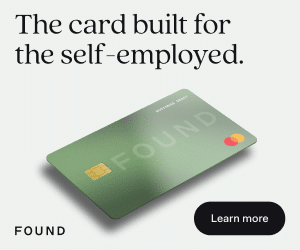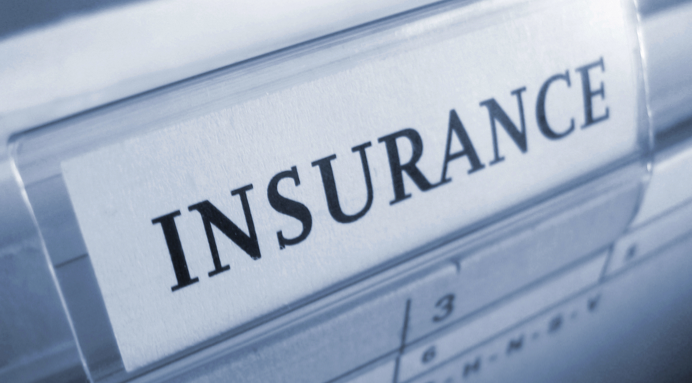The Freelancer’s Union recently announced the ability for members to purchase liability insurance. But as freelance designers, do we really need it?
Truthfully, when I read the “hey, we’re now offering liability insurance” email, I wondered what, exactly, that entails.
According to their website, there are three main types

Get Weekly Freelance Gigs via Email
Enter your freelancing address and we'll send you a FREE curated list of freelance jobs in your top category every week.
NOTE: I am not a lawyer, nor am I offering professional or legal advice. The following are just my observations and conclusions as a fellow freelance designer.
Please seek legal advice or contact The Freelancer’s Union directly for more information.
Finally, I am not an advocate for The Freelancer’s Union nor am I receiving any money to blog about their products and services.
Types of Insurance
Professional Liability
Of the three, professional liability insurance is probably the most applicable to our profession. This type of insurance, also known as errors and omissions insurance, covers things like:
- Claims of negligence
- Awarded damages and defense costs
- Claims of libel and/or slander arising from your work
- Punitive damages
- Claims arising from subcontracting
So what does that really mean?
Well, let’s say you’re working on a project where you’re comparing your client’s product to “other national brands.” You choose an orange laundry soap bottle (no markings) and Tide slaps you with a libel case.
Or, perhaps you’re working on a sweepstakes marketing campaign and your client refuses to put some required fine print on the poster (in this situation, don’t forget to save your communications). When they get hit with a huge government fine, they blame you for the omission.
Is this type of insurance really necessary?
If you work with corporate clients with strict legal departments, lawyers or other professionals who are very law-savvy, or heavy legalese (such as disclosures or sweepstakes-style campaigns), professional liability insurance might be a good safeguard for you.
However, if you’re working with clients who don’t have the time or money to sue you unless you do something REALLY egregious, it’s probably not worth the expense.
General Liability
General liability insurance, in my opinion, is the least necessary of the three for the typical freelance designer. It covers a third party’s:
- Injury and medical bills
- Property damage
- Loss of data due to equipment damage
- Libel or slander arising from your spoken or written words
- Loss due to actions of temporary staff
Is this type of insurance really necessary?
General liability insurance becomes more necessary the more equipment and the more in-person interaction you have with your clients.
For example, if you do on-site photo shoots with photography equipment that can present trip hazards, you might consider general liability insurance.

If you rent office space or host events where people could injure themselves, this type of insurance might be worth checking into.
However, if you’re like me, the vast majority of your work is done away from the general public and therefore you’re probably not at risk enough to justify the expense.
Business Owners Insurance
Business Owners Insurance combines general liability coverage with protection for your business equipment and data.
Is this type of insurance really necessary?
You probably need to research your property insurance to get a better picture because most homeowner’s insurance doesn’t cover home businesses the way you think they might. A few things that might not be covered:
- Specialized equipment such as photography equipment, professional printers, and large redundancy storage
- Medical coverage for a client visiting your home office
So if you have the “normal” office equipment, especially if it is for both personal and business use, your property insurance will typically cover your equipment.
Do you need liability insurance?
As you can see, whether or not you need liability insurance (and what types) greatly depends on your freelancing circumstances. I encourage you to talk with a business consultant or lawyer to determine if insurance protection is right for your business.

Personally, I believe my contracts protect me in much the same way that professional liability insurance would.
Were a client or client competitor to pursue legal action, I have a “paper trail” of information and client signoffs that protect me from assuming “decision-making” responsibility for finalized projects. Furthermore, most of my clients don’t have the time/energy/money to pursue legal action for anything but the most flagrant misconduct.
Secondly, I rarely work in and around the general public, so a third party injury is highly unlikely.
Finally, I need to do some research (I’m in the middle of an out-of-state move) to find out what my new homeowner’s insurance will cover. Once I understand that, I can determine if business owners insurance would be a smart choice.
What do you think?
Leave a comment and tell us what you think. Do you have liability insurance? Have you ever known anyone who needed the coverage? Do you believe liability insurance is a scam to steal your hard earned greenbacks? Let us know – I look forward to hearing from you!

Keep the conversation going...
Over 10,000 of us are having daily conversations over in our free Facebook group and we'd love to see you there. Join us!




Having recently left my old job and gone into the freelancing business, I’m really glad I’ve happened across this article. If I’m completely honest I hadn’t really thought too much about the insurance side of things, so I’m glad I’ve seen this (it’s definitely helped put things in perspective for me). I will definitely be looking into getting some freelancing insurance now! Would you be able to recommend a good company I could go through? My friend briefly mentioned a company called Simply Business a while ago. This is their homepage . Have you heard of them? My friend said they were good but I just wanted to get a more professional opinion as well. I’m very much a novice when it comes to insurance based areas of business, so any advice you would be able to give me would be amazing!
Can anyone recommend an insurance company for professional liability insurance that includes errors and omissions and copyright infringement claims?
As a freelancer who’ve suffered from loopholes in a contract, I totally agree with anyone who suggests paying a little extra is a lot better than not to be covered at all. Especially mid to large size clients with lawyers can totally find a gap on the contracts to file a lawsuit against you even though you think you’re safe with the contract you’ve written. I learned it the hard way. Now I’m simply paying $10-12 extra each month for liability insurance to get covered up to $500.000 in lawsuits. I totally don’t mind that amount. It’s no brainer for me at this point.
Can anyone recommend an insurance company for professional liability insurance that includes errors and omissions and copyright infringement claims?
Do you have to be a formal business to have such insurance. While my work is sporadic, right now I don’t have the need to become a formal LLC etc. etc.
I’d be careful suggesting you don’t need any insurance because you have contracts.
Seek legal advice on your paperwork because loopholes can occur and remember most contracts will struggle to cover your mistakes!
My position, I run a small digital agency here in the UK and as you can get insurance for less than £100, insurance for most SMBs it’s a no brainer.
For the average Joe F. Lancer, insurance is far from worth the cost and hassle to keep track of. However, my philosophy to everything in life is if it is something to protect you – warranty, insurance, extended protection plan, etc. and you have the extra $$ to toss at it (and not the money needed to repair/replace/protect the thing you’re looking to cover (tech device, vehicle, yourself, etc.) then by all means, fling the money out the window and be protected.
I always get AppleCare for my Apple products. I had to save up the $$ to get the product in the first place. $99-149 is a LOT cheaper than paying most repairs or any replacements. In that case, the extra $$ forked over for protection is very much worth the peace of mind.
I think that what is good in freelance job, is actually the freedom of it, and with insuarances and costs it is more like running your own business – just with one employee – yourself. I don’t say it’s bad – on the contrary – if you are starting your samll business this way it’s great, but it will be more like running a business then
Bobbi,
Awesome comment from start to finish. I think each designer needs to look at their situation, clientele, niche, and equipment to determine what’s right for them.
I, too, require sign-offs (and sign-ons – the go-ahead to proceed with add-ons and extras) for all of my work. And I keep my fingers crossed that I have the good business sense to protect myself and choose good clients.
Thanks for sharing!
This is a good topic. For the first three years of my at home design business, I only carried apartment insurance, because everything in my apartment was purchased prior to starting my home business. Although the insurance people naturally wanted me to have insurance, I did not purchase because: a) my clients did not meet at my home, I met with them in public spaces like Panera Bread, b) I live in an apartment, hence any physical injury to a client is the responsibility of the housing complex, hence I am not liable for any on-site injuries, c) all of my household items, which include my office equipment is covered by my apartment insurance from theft, fire, flood, etc., d) all of my office equipment is used for my business, however, any personal usage comes under my apartment insurance.
When, however, damages caused my fire, theft, flooding, for my company needs are replaceable only if I have business insurance. Also, if I want to perform any government, for large organizational contracting jobs, the request for business insurance was a pre-requisite before any proposals for such contracts were submitted for consideration.
Aside for the afore reasons, I too see not need to purchase business insurance. I write very concise contracts between my company and any business that I work for. The contract is very important for protecting both client and supplier of any design contracting job. I also make the client sigh-off on all contracted jobs, even if I perform voluntary work. Business owners must protect themselves for lawsuits, for in this world you never really know all of the different character types that may want services from you. Thus, the contract is very important. The AIGA has info in their database to guide designer with contract development. I also went to Amazon to look for books on design contract development. A good one is by: Crawford & Doman Bruck-Business and Legal Forms for Graphic Designers, published by Allworth Press. I really examined the legal jargon to help me design my contracts. Then, a lawyer is needed to make sure that your contracts are written to protect you. I have contracts for graphic design, web design, branded designs, etc. If there are specific types of design types, such as: advertisements, event materials, etc., then I will write up a special contract using the legal jargon needed to protect my company from any lawsuits.
Very good topic, I look forward to learning more from other freelance designers, concerning their views, usage, or non-use of business insurance.
While I agree with the majority of your reply, I must point out my concern on your part
‘b) I live in an apartment, hence any physical injury to a client is the responsibility of the housing complex, hence I am not liable for any on-site injuries’
I have been a property manager/owner handling tenants in CT for 12 years and in the insurance business for 16+ years. I would consult a legal expert in this matter.
Like a contract, a lease will lay out terms of your tenancy. Most landlords or property managers have clear language that states you are responsible for your guests. That includes your clients. Furthermore, if you are a residential renter, your lease may have language that states you are not allowed to operate a business while residing there. In the absence of either, there are legal tests of negligence, participatory liability, and conditions that will determine the percentage of who is responsible.
ex: You have clients come over your apartment which you have control over, they slip in your kitchen because you just wet mopped. This is 100% your liability. Hopefully, your renters insurance has premises liability, and will not exclude you for a claim related to a business operation. (Your insurance policy is another contract that will determine how things are to be covered.)
I also agree with the reasonable overview of this entire article. E+O or Professional liability is the best thing to protect you for failure to deliver your goods or services, breach of contract, etc. But you could write your contract to address much of that. What it’s coming down to lately is the companies you are contracting with are insisting you carry General Liability, E+O, or even Workers Compensation for yourself. Insurance shouldn’t be purchased with the intent of landing a contract. It should be purchased because you want to transfer the majority of your risk exposure and protect your assets.
I hope to read some comments back. I think sharing info if great.